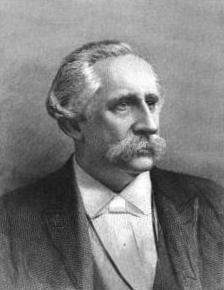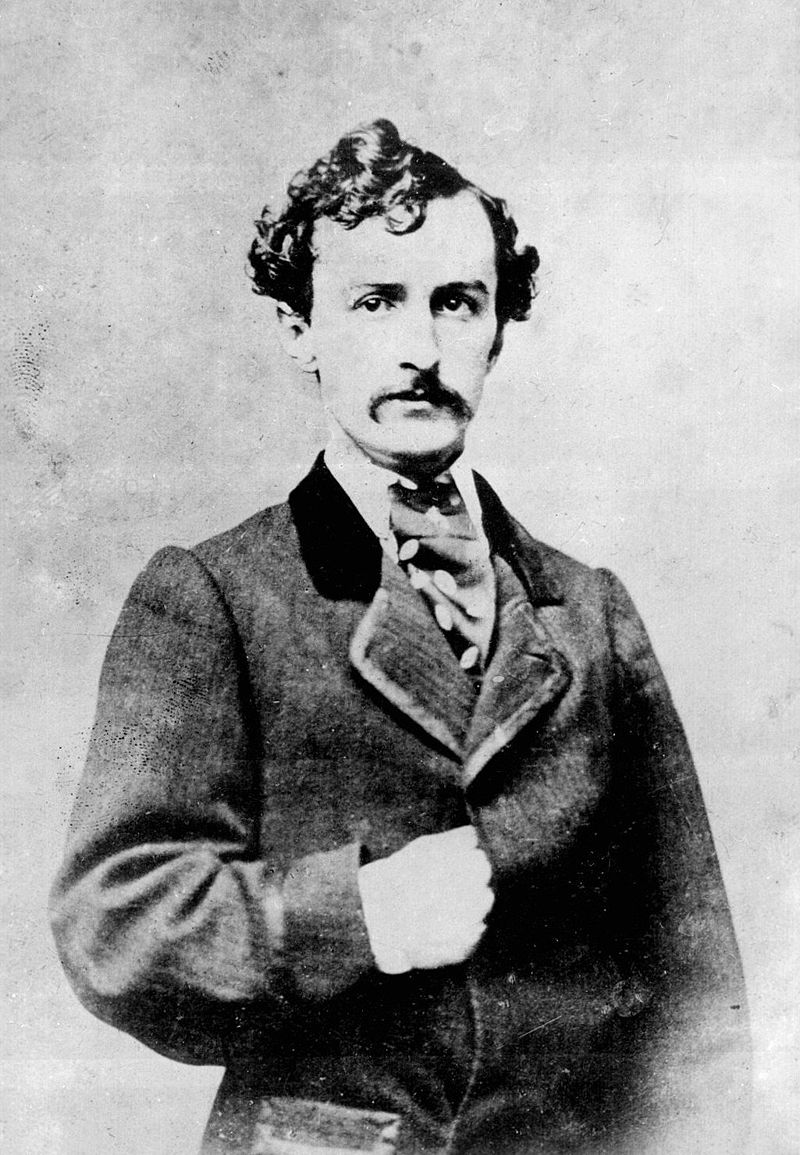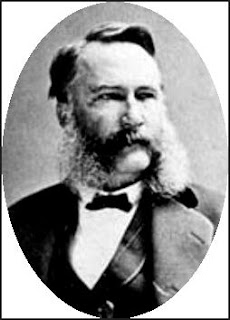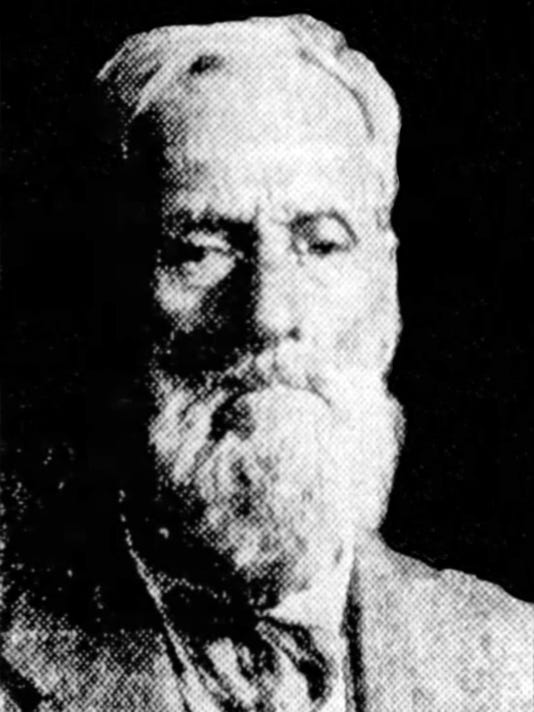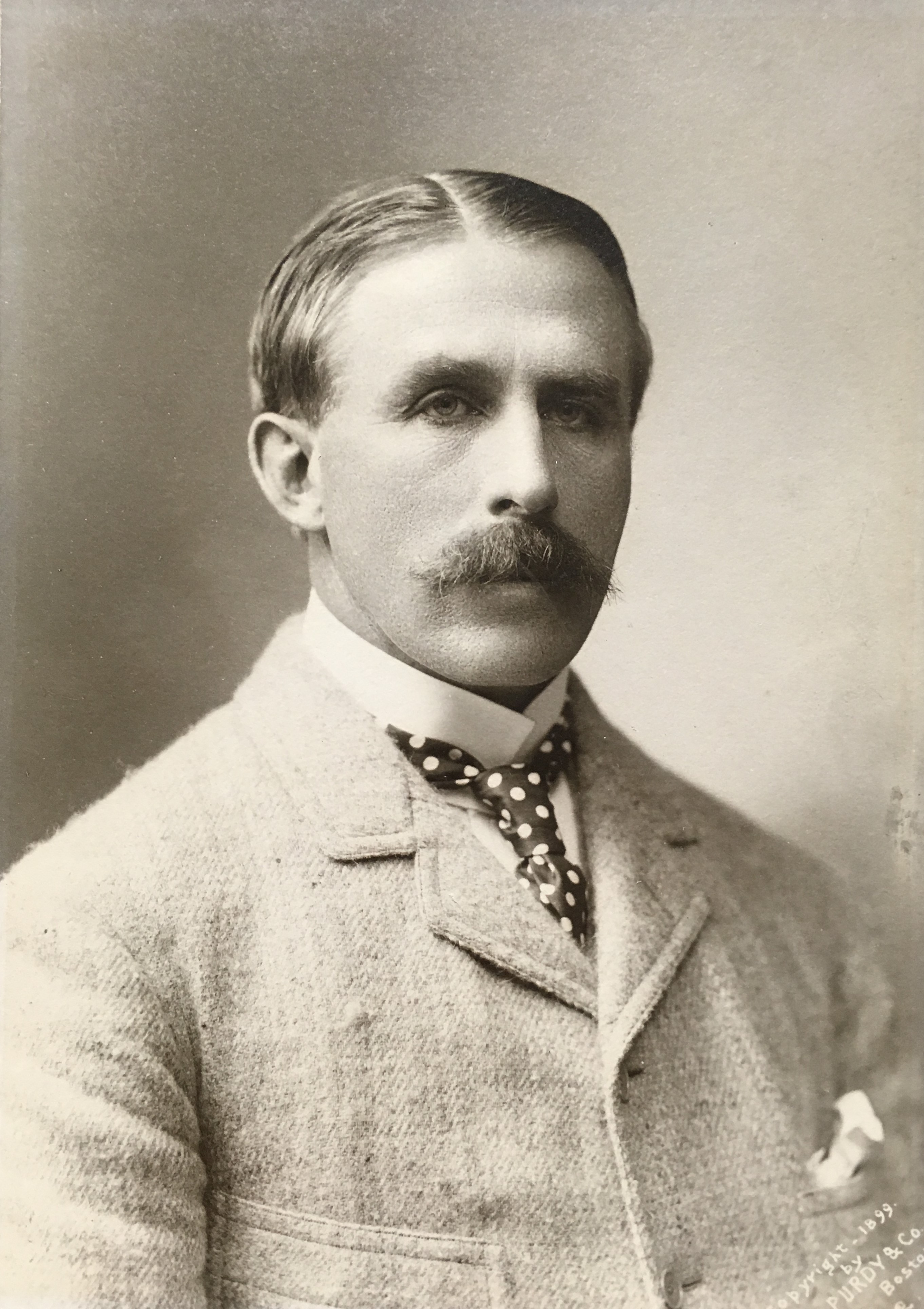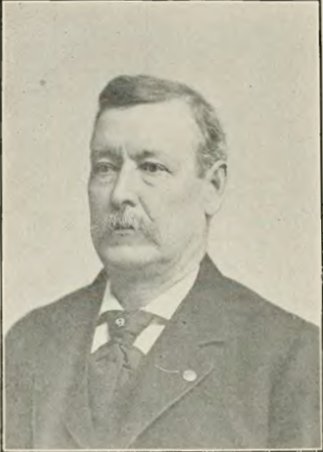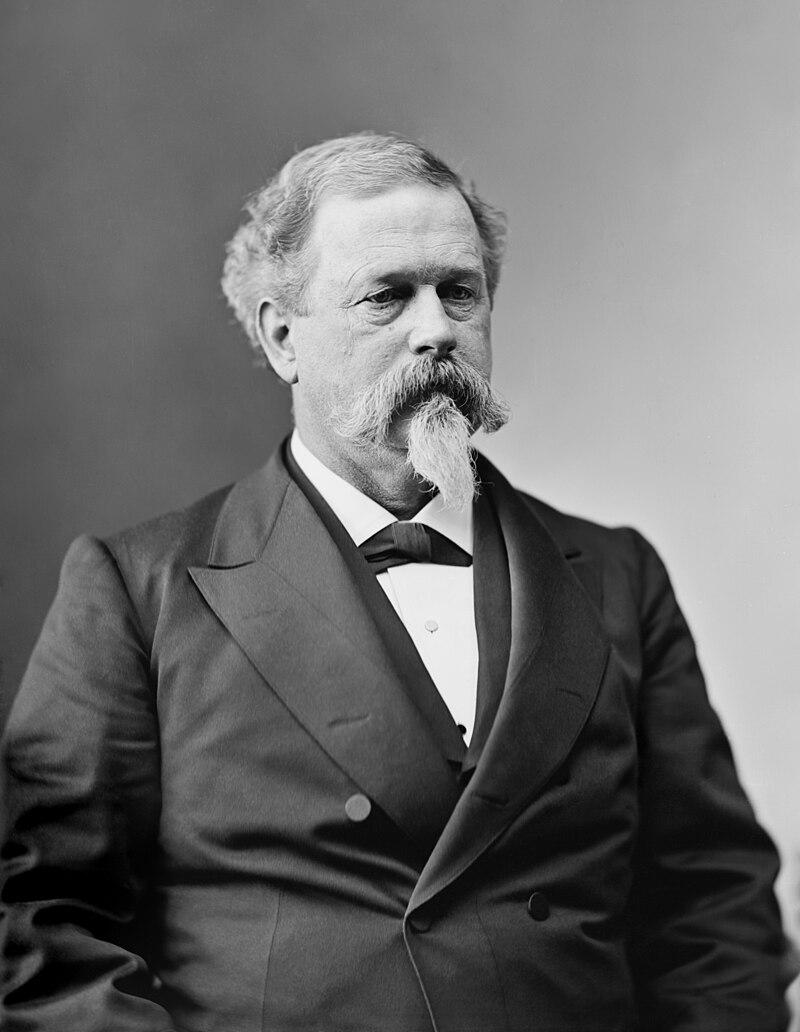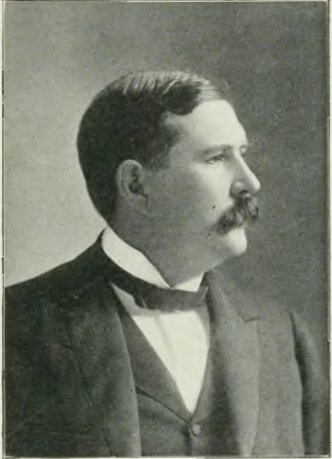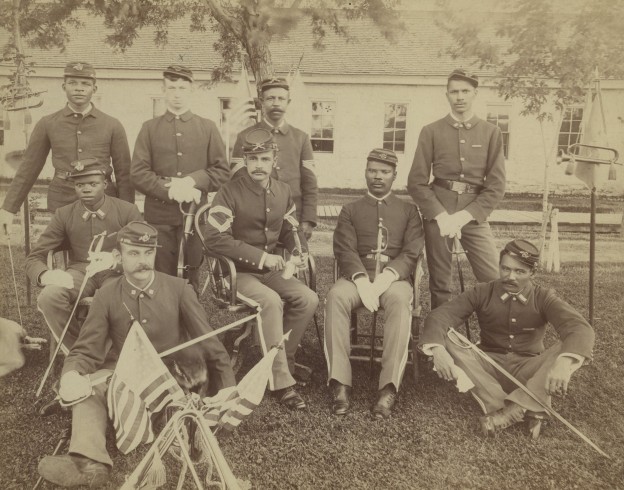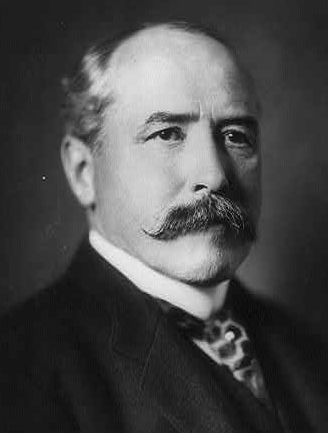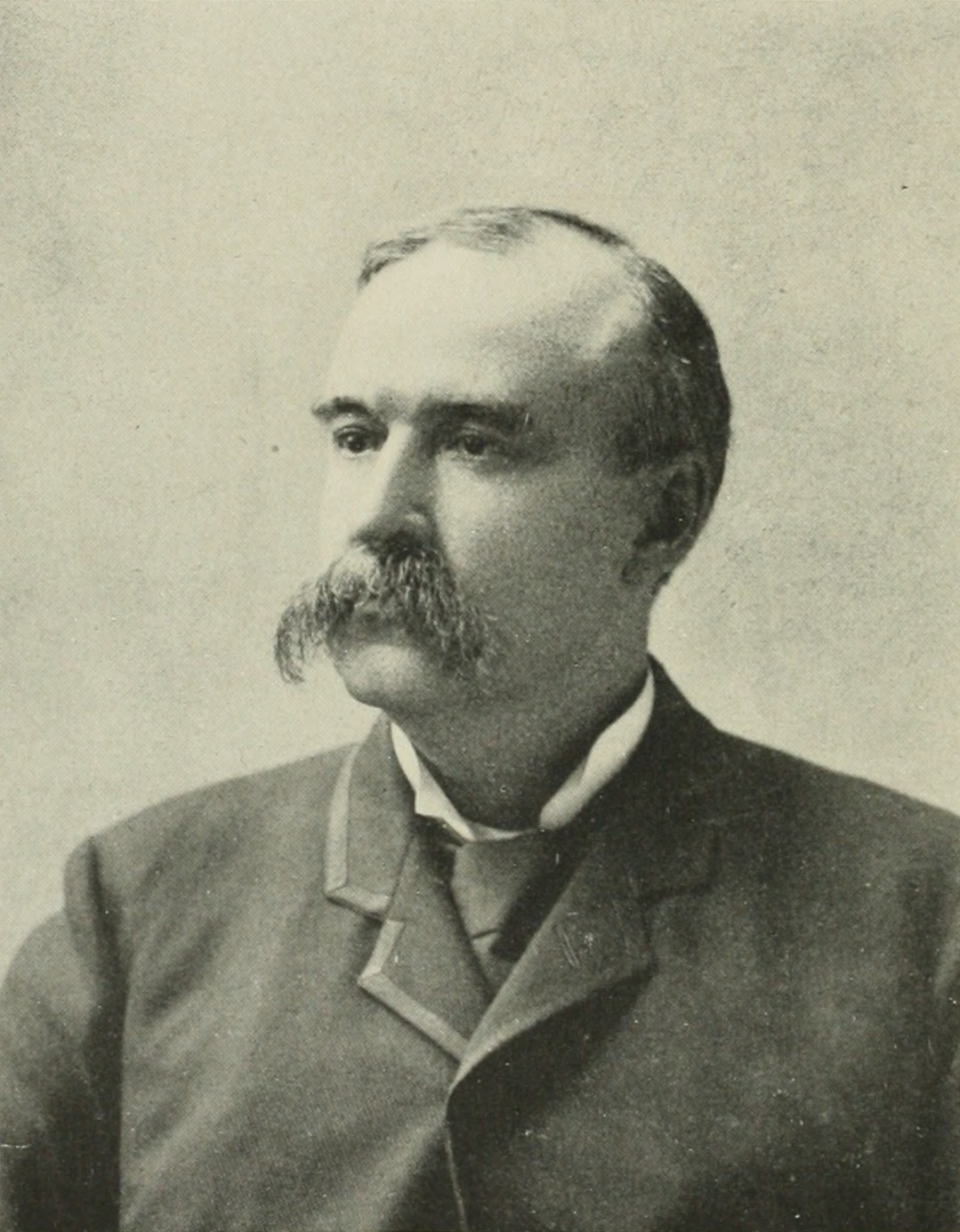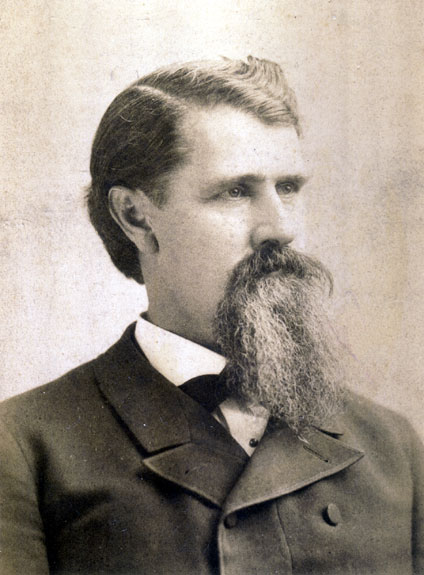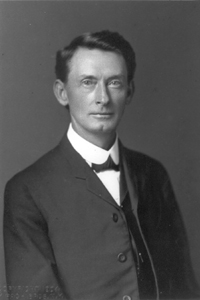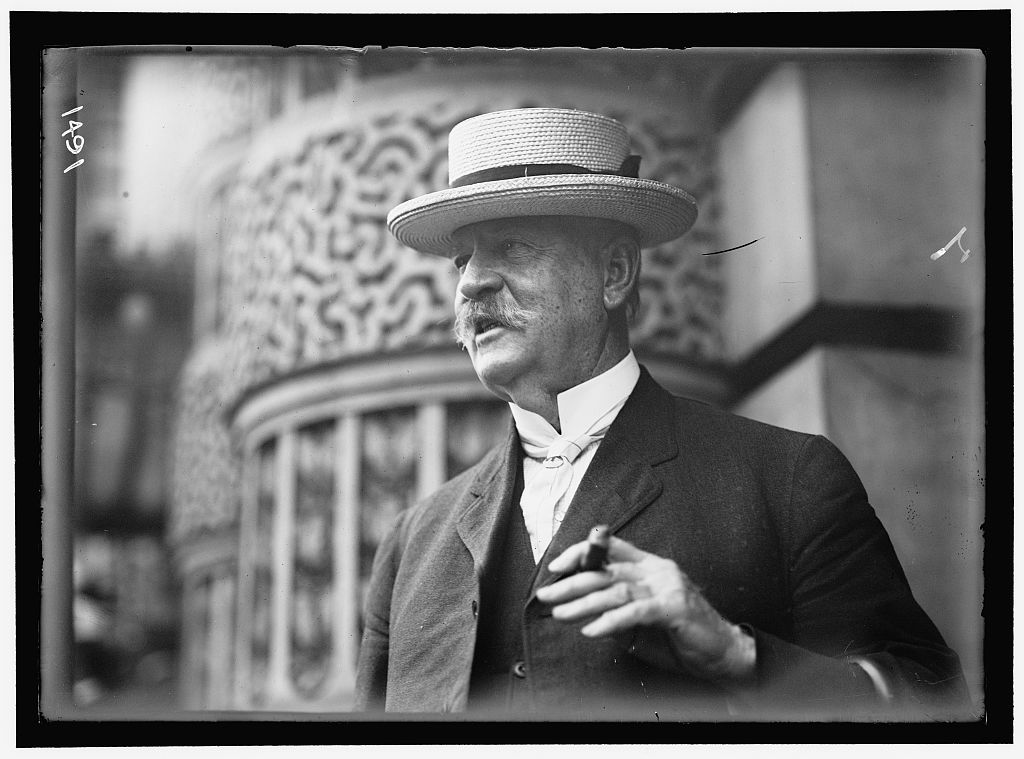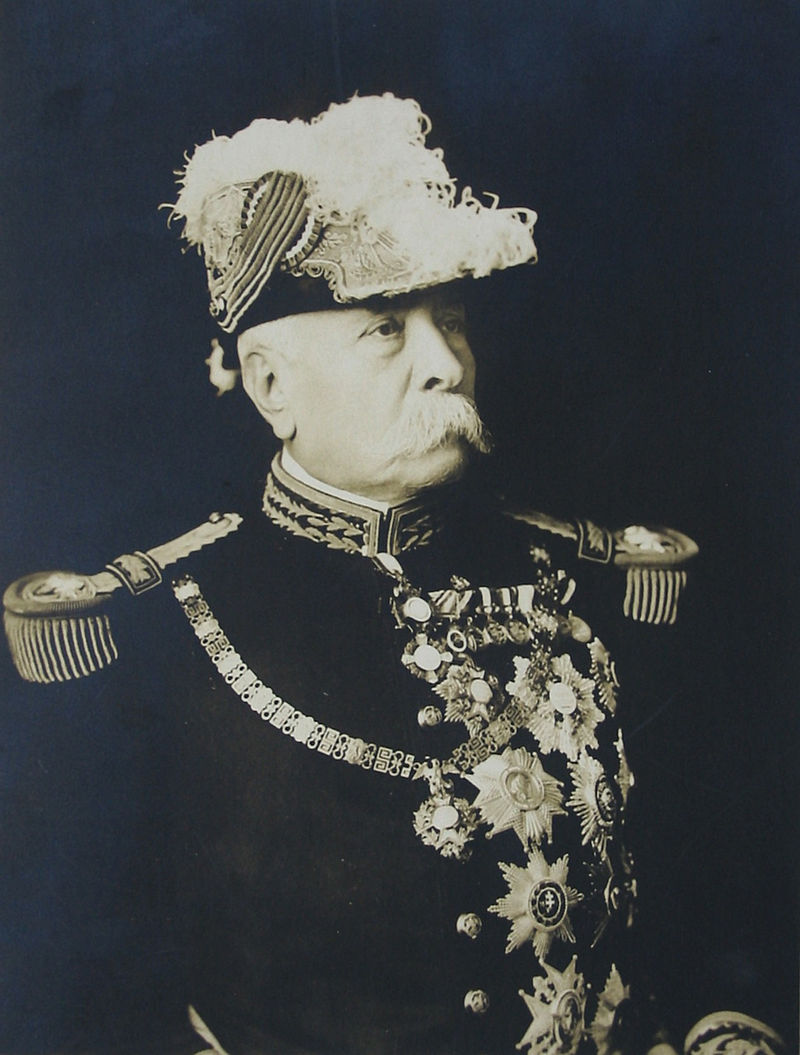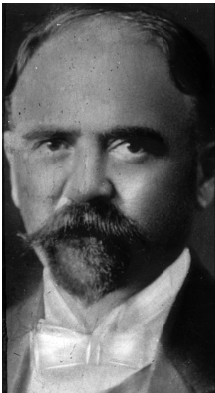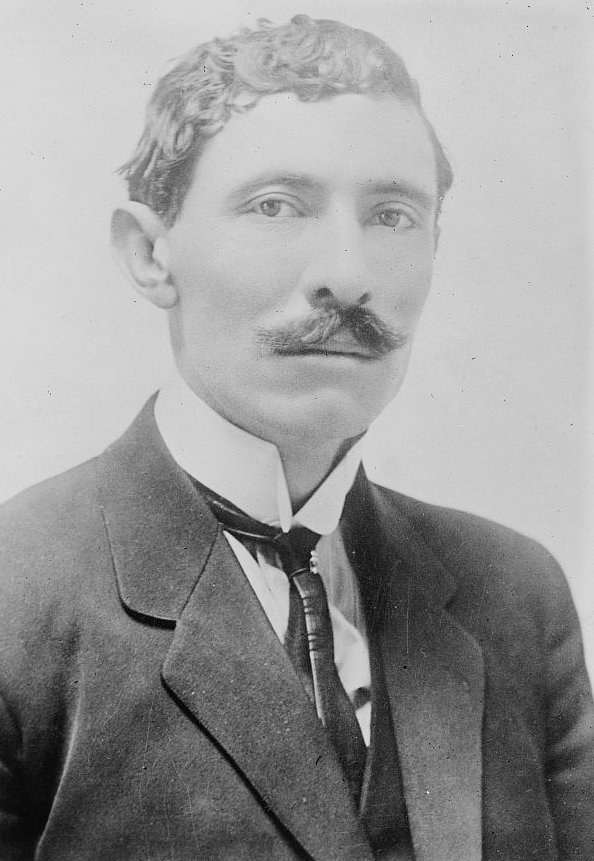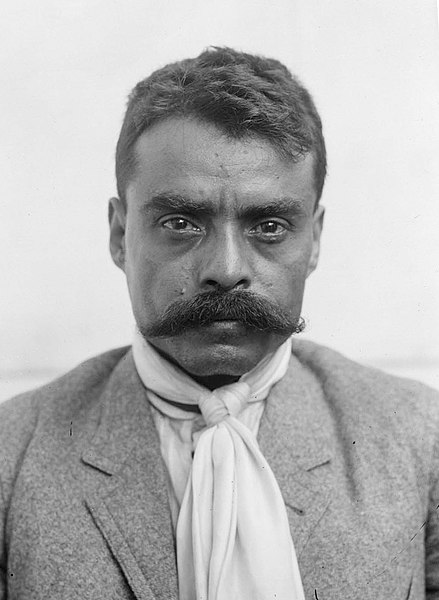Chapter Fifty-Eight: The Presidency of Theodore Roosevelt
President Theodore Roosevelt
When Roosevelt assumed office, he realized that his campaign promise to be a continuation of McKinley could pose some potential restrictions on his cabinet. He believed that to maintain support within the party, he would likely have to maintain at least some of McKinley's appointments. In the end, half of Roosevelt's cabinet were from the previous administration, and half were new appointed men. Roosevelt wanted to show he was not afraid of the Republican Party leaders, however, by retaining only one of McKinley's men, Lyman Gage, in his post among the original and most prominent four cabinet positions: State, Treasury, War, and Attorney General. Roosevelt's recognition of the need to work with the more conservative members of his party also showed in his choices for the four previously mentioned positions. In these posts, Roosevelt would have three conservative leaning men-Henry C. Lodge at state, Lyman Gage at Treasury, and Philander C. Knox at Attorney General-with only one of the more progressive leaning Republicans-Leonard Wood at War. This careful configuration of his cabinet demonstrated both Roosevelt's political acumen, as well as his ability to figure out how to work with others.
Henry Lodge, Lyman Gage, Leonard Wood, and Philander Knox
Roosevelt's first major initiative in office would be bringing the vetoed Sherman Anti-Trust Act back into the spotlight. With its veto by President Hill, what could have been a restraint on monopolies with their ever increasing power had been cast aside, and it was quickly overshadowed by the turmoil of the Custer presidency. Roosevelt, however, still believed in the bill, and hoped to give it a second chance. In the House, Iowa representative William P. Hepburn, who was a progressive Republican and one of Roosevelt's closest allies in the House, guided it through with little resistance. It was in the Senate that it faced its fiercest opposition, with it being lead by President Pro Tempore William P. Frye of Maine and veteran senator Joseph R. Hawley of Connecticut, both of whom viewed it as a limitation of a burgeoning U.S. industry. Leading the fight for it would be Jonation P. Dolliver, a new senator from Iowa who was a great orator. After much debate, the bill, now known as the Dolliver Anti-Trust Act, was passed, with Roosevelt signing it into law. Many recognize this moment as the time when power shifted from the old guard of the more conservative Republicans, to the new guard of progressives lead by Roosevelt, although the conservatives remained a potent force in the party.
William P. Hepburn, William P. Frye, Joseph R. Hawley, and Jonathan P. Dolliver
Roosevelt's stance on racial issues would be mixed throughout the presidency. On one hand, he was fine with African-Americans and other minorities holding office. He also had several dinners with the John B. Washington, who by now was almost legendary to African-Americans, with many, including Roosevelt, referring to him as the "Freedmen's George Washington". His reputation for progressive being racially, however, would be challenged by the Miles City Affair. In this, hostility between the the more racist inhabitants of the city and the 27th U.S. Infantry Regiment, a colored unit garrisoned in the local Fort Davies broke into clear light. One night on February 3, 1902, both a tavern owner and a policemen were shot by an unseen assailant, with the tavern owner eventually succumbing to the wound. Seeing now an opportunity to exact punishment on their foe, the townsfolk of Miles City demanded that their mayor find out which member of the 27th committed the crime, and to take action to punish him. The mayor hesitated, not really believing in the guilt of the soldiers, but being a member of the Reform Party, which by now was in its twisting death agony since Roosevelt took most of their ideas, decided to go along with it to maintain popular support. Using evidence, which were the spent U.S. Army bullets, given to him by the mob, the mayor demanded to know which soldiers committed the crime, completely unaware that they were planted. When all the soldiers denied the accusation, the Inspector General of the Army became involved, and decided the suspect had to be a member of one of three companies he selected rather arbitrarily. When all these men again denied the accusations, the matter was brought before Roosevelt to decide. Deciding to ignore advice from both General-in-Chief Joseph A. Mower, who had taken over following Merritt's 1900 resignation from the army, and John B. Washington, Roosevelt decided to dismiss all three companies with dishonorable discharges. It is almost unanimously agreed today that none of the men dismissed even had knowledge of the shooting, and in 1978 the U.S. government would formally apologize, pardon them, and give them honorable discharges, to which only three of the accused were still alive to see.
John B. Washington, a photograph of some of the officers of the 27th U.S. Infantry ca. 1890, and Joseph A. Mower
When his term came to a close, it was to clear to all that Roosevelt had managed to establish himself as the leader of the Republican Party. Although the "Old Guard" of conservatives, including Senators Mark Hanna, William B. Allison, William P. Frye, Nelson Aldrich, Matthew Quay, and Joseph R. Hawley remained a potent force and were able to block some of Roosevelt's bills in the Senate, he made clear that he was an independent man, and his renomination for the coming election seemed sure.
Roosevelt and his cabinet:
President: Theodore Roosevelt
Vice-President: James S. Sherman
Secretary of State: Henry C. Lodge
Secretary of the Treasury: Lyman Gage
Secretary of War: Leonard Wood
Attorney General: Philander C. Knox
Postmaster General: Henry C. Payne
Secretary of the Navy: Charles J. Bonaparte
Secretary of the Interior: Ethan Hitchcock
Secretary of Agriculture: James Wilson
